Dust off the novelty apron, dig out the rust-flecked spatula, and get the golf umbrella on stand-by –barbecue season has arrived. As a nation, we’ve come a long way from the carbonised sausages and long-life rolls that defined the Great British Barbecue™ in years gone by. However, it’s no good cooking like a Texan pitmaster if your drinks offering lets the side down. Butcher Lyle Wheeler of South East London institution Flock and Herd has seen first-hand the way our cooking habits have changed in recent years and he has some great advice on what to drink when your grilling. These are some of the best barbecue and booze pairings to impress your mates with this summer.
Chilled Red Wines with Cold Cuts and Steak
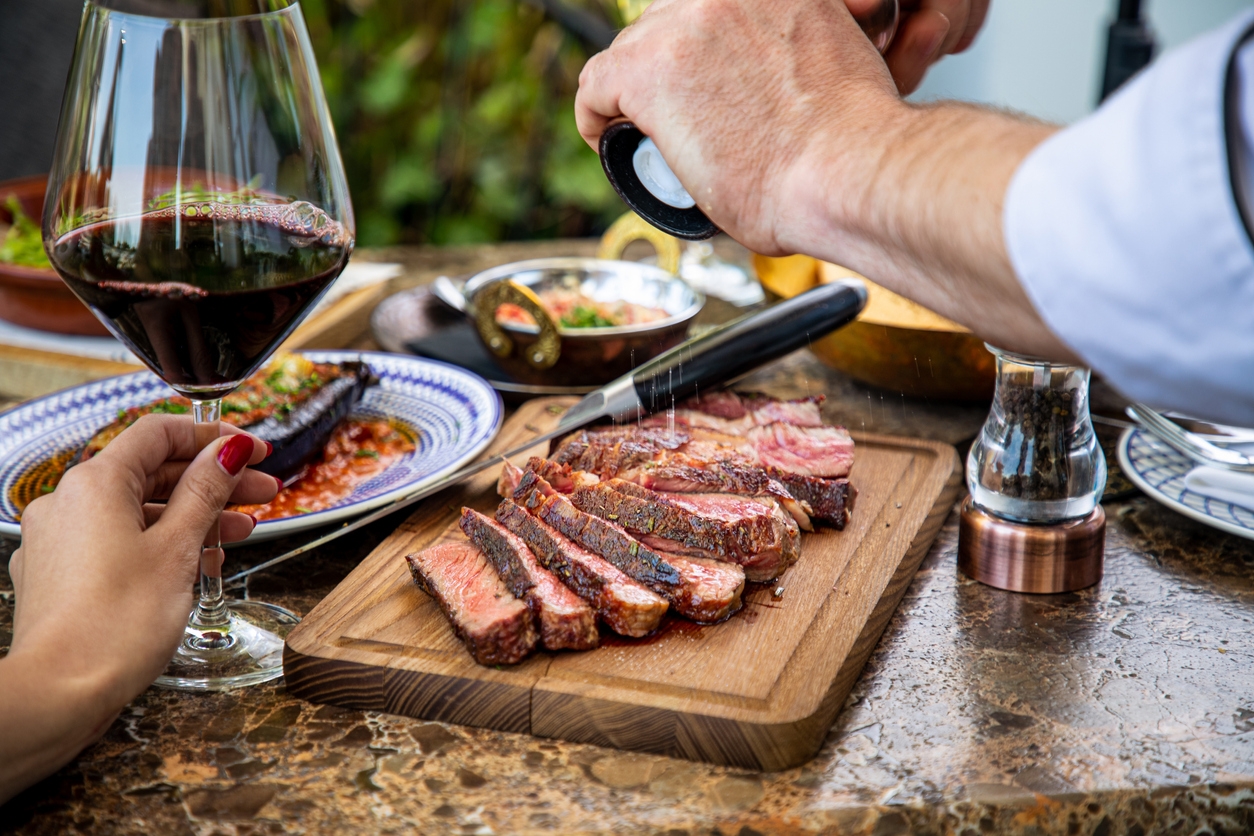
Don’t worry, they do it all the time in France. Nobody’s going to call the wine police on you if you throw a couple of bottles of red in a cooler full of ice. ‘I really love a chilled red. It’s the perfect way to start off an event on a hot summer’s day,’ Says Lyle the butcher. ‘My go-to would be Hurluberlu Sebastian David, 100% Cabernet Franc (£16.95 – Buonvino or Flock and Herd if you’re in the area). Its rich dark fruits and leather notes go great with cold, fatty meats, and large juicy olives.’
Medium-light bodied Beaujolais will also benefit enormously from a bit of a chill, especially if you’re drinking in the afternoon sun. Beaujolais Village Domaine Andre Colonge 2019 (£12.45 – The Whisky Exchange) tastes like strawberries, cherry drops, and black pepper and drinks very nicely from a tumbler. For something a little wilder from the same part of the world, the La Gapette Jonchere Gamay (£22.50 – Shop Cuvee) has lots of crunchy plum and blackberry and tastes absolutely alive. It’s a spritely 10% ABV as well as being organic and sulphite-free so basically a smoothie – drink guilt-free with richly-flavoured cuts of beef like bavette.
Hoppy Ales with Chops and Sausages
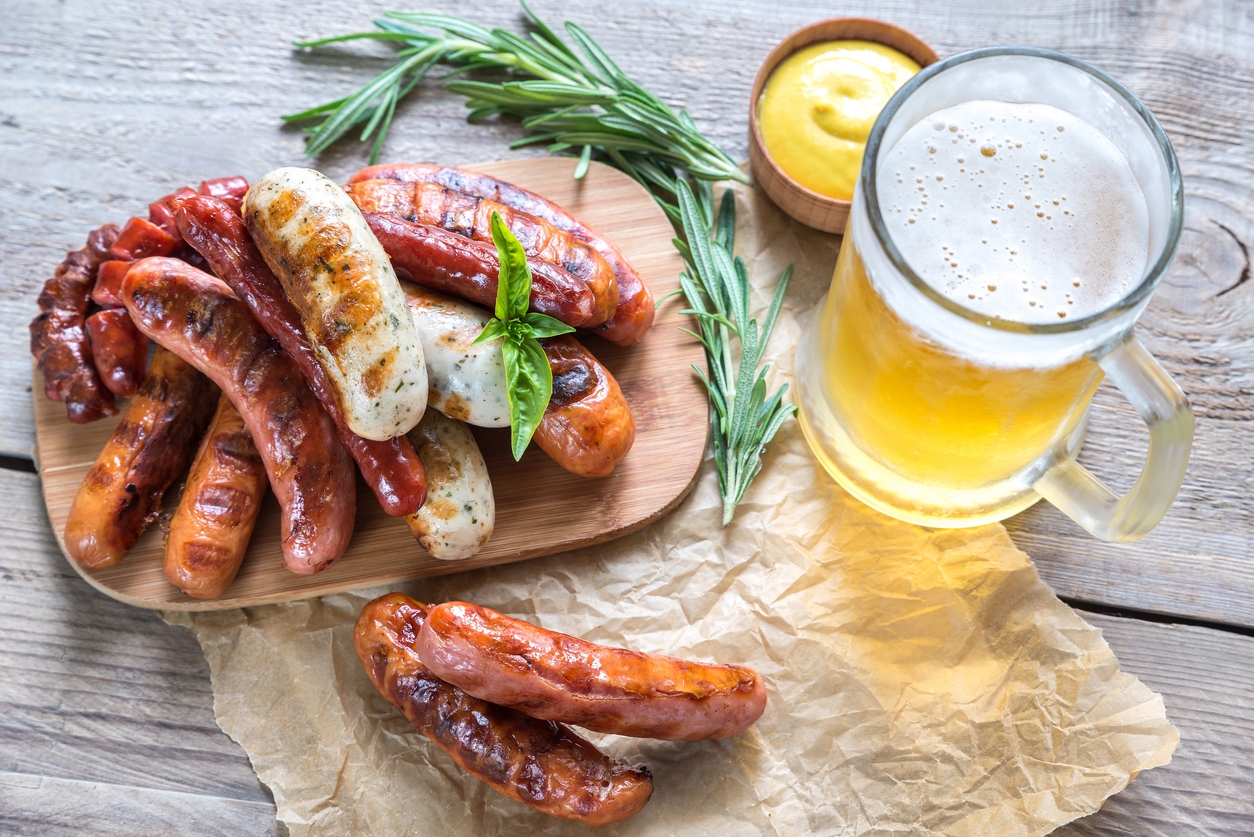
You may have spent thousands that green egg barbecue they use on the telly, your showpiece steak might have come from a massaged Kobe cow, but there’s no way your barbecue is too fancy to feature a few cans. ‘Beer has got to be involved,’ says Lyle. ‘Even your run-of-the-mill supermarket lagers are great with hotdogs, sausages, burgers with ketchup. There’s a real nostalgic element to that combination.’
However, he’s quick to say that pairing beer with meat can be as flavour-enhancing as an astute choice of wine. ‘If you compare it to red wine; the tannin and fruitiness in something like a Malbec cut through fat and protein, the hops in beer can work in the same way.’ More than 100 varieties of hops are used in brewing around the world, each one with a unique set of flavours to impart. ‘Herbal, woody tasting hops in an IPA will work really well with pork.’ The craft beer true-believers at Kernel use different hops in their brews based on the season. Their beers evolve constantly, showing various levels of citrus, spruce-y herbs, and tropical fruits, depending on what each harvest brings. A mixed case of their Kernel Pale Ale (£36 for 12 500ml bottles – Direct) should provide good backup for pork chops and sausages. Alternatively, online bottle shop Beer Hawk offers a session-able IPA and Pale Mega-Pack (£35 for 24 cans – Direct) featuring brews from Camden Town Brewery and Thornbridge. Just the thing if you’re making sausages for a crowd.
Orange Wine with Lamb or Seafood
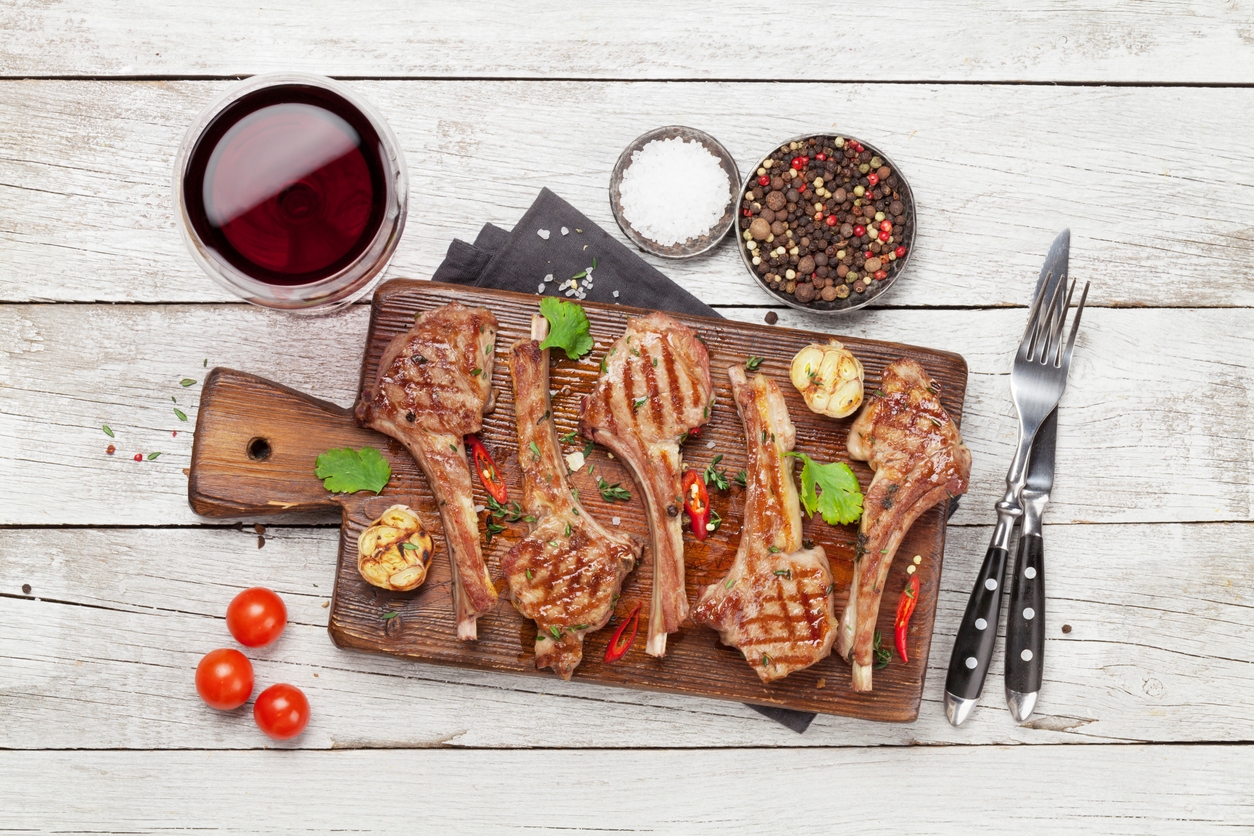
Skin contact wines, made by fermenting juice with grape skins and seeds, are perfect company for big barbecue flavours. North London wine specialists Shop Cuvée carries a very smart orange Burgundy by the 1.5 litre bag that’s purpose-built for garden drinking. The Skin Bagnum, Aligoté (£29 – Direct) is a nice example of the style – creamy and slightly mineral, with just enough grippy tannin to match with darker meats. Wines like this, served not-too-cold, have got more than enough personality to stand up to lamb chops or kebabs and cut through any barbecue char. According to our top London butcher, they’re also a good match for the super-flavoursome ex-milking sheep sold at Flock and Herd. ‘A pure, natural orange wine will pair perfectly with a butterflied leg of Herdwick cull ewe that’s had a bit of smoke from a charcoal barbecue lick over it. Absolutely delicious.’
On the lighter end of the scale, the latest vintage of Romanian producer Viile Timisului’s Solara Orange Wine (£9.95 – Twisted Cellar) recently landed in the UK. It’s really charming stuff, lightly coloured from a short period of maceration, and full of fresh fruit flavour. You should get plenty of pear, citrus peel, and woody herbs on the palate which will match well with grilled white fish, prawns, and spicy marinades. Probably best to get a few in if you’re feeding a crowd as they tend to disappear quickly.
Dark Lagers with Bone-In Steaks and Slow-Cooked Beef
There’s a tendency to think of dark beer as definitionally suited to colder weather. However, a crisp, dark lager combines perfectly with grilled red meat and sunshine. ‘If you’re doing beef – a slow cooked brisket, maybe – you might want a darker beer with some coffee flavours. Dark lagers and stouts will work well with slow cooked beef, short rib, or steak,’ says Lyle. When you’re cracking your first beer in the small hours of the afternoon it’s always good idea to keep an eye on the ABV. The 1% Small Beer Dark Lager (£2.15 – Ocado) is full of umami-boosting toasty notes that will enhance everything good about a piece of beef without putting you in bed before the sun goes down. A great example of the low-alcohol, highly-flavoured style the brewery has been pioneering since 2016. If you’re looking for something with a touch more oomph the good people at Adnams will sell you a case of Kostritzer Black Lager (£29.99 – for 24 bottles). One of the original German schwarzbiers, it’s full of bitter chocolate and coffee but is still crisp like a pilsner. Throw this down with some salty, sweet, smoky American-style slow cooking and you’ll be set for the night. It’s one of the world’s most overlooked brews and well worth inviting to your barbecue.
Whisky Highballs with Chicken or Ribs
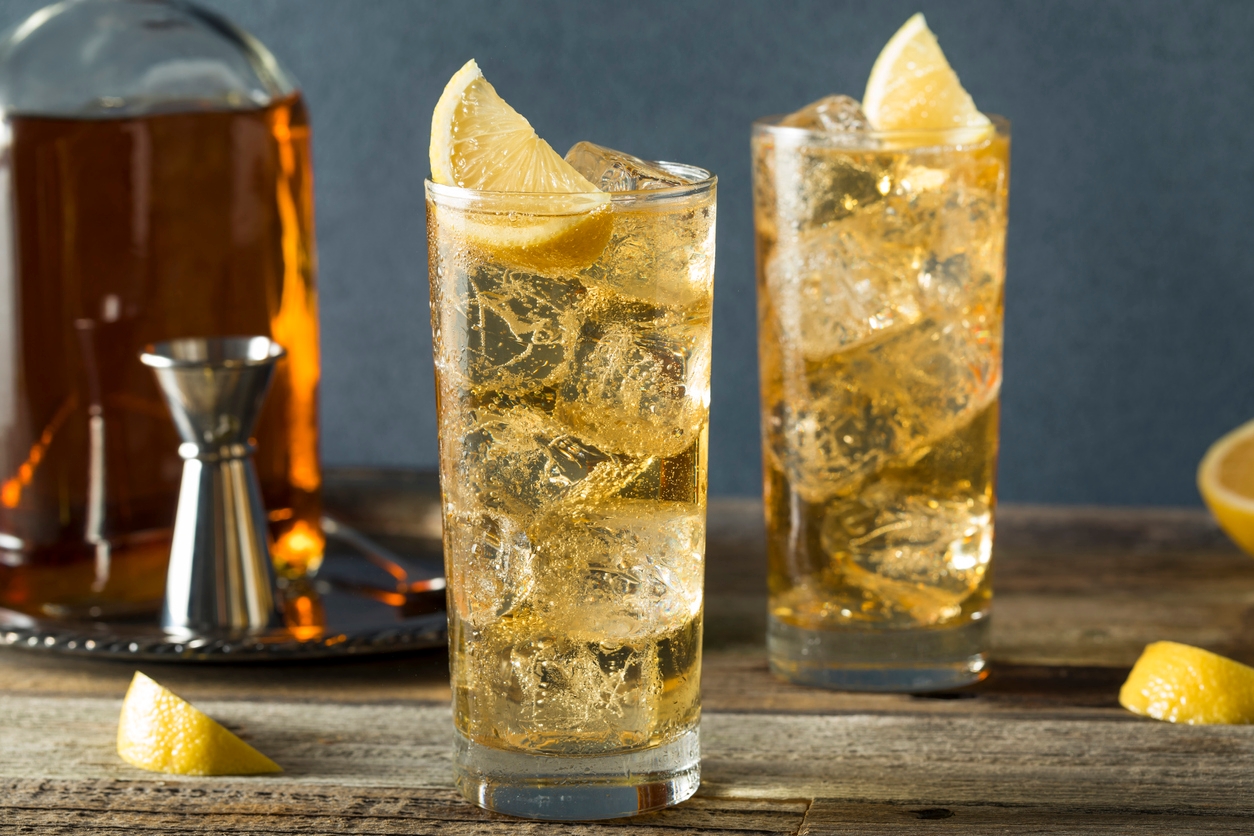
We may not think of it as one of the great barbecue cultures, but in every city in Japan you’ll find yakitori ya where chefs grill skewers of meat over white-hot coals. While beer and sake both have their place at the counter the drink of choice in such establishments is whisky and soda served with lots of ice. The serve is so popular there that it’s mostly responsible for the current shortage of Japanese malt whisky. In these parts we can be a bit funny about mixing whisky but this is a good case for giving it a try. The humble highball loves food, being at once refreshing, palate cleansing, and umami-boosting. Suntory Toki (£29.90 – Master of Malt) served about 2:1 with good quality soda water and a little strip of lemon peel is citrussy and creamy, with spearmint and white chocolate: A natural pairing for salty marinades and grilled chicken.
For a different take on the formula try Kentucky Straight Bourbon with a nice, cloudy lemonade and a few mint leaves if you’re fancy. According to our top butcher, “Bourbon should always have a place beside the barbecue. You’ve got the smoke from a good oak charcoal grill and the charred flavour coming from that American oak barrel. What more could you want? I love to drink this while I’m trying to perfect my Mississippi baby back pork ribs. If I close my eyes and put on some tracks by the Dead South (even though they’re from Canada) I’m almost there.” Four Roses Original (£23.95 – The Whisky Exchange) has a lovely balance of creamy vanilla, orange peel, and baking spices that works a treat in simple serves like this. Just the thing to drink while you’re living your barbecue fantasies.
Flock and Herd has locations in Peckham and Beckenham. Lyle Wheeler can be found on Instagram @southeastbutcher and if you ask nicely he’ll hook you up with some cull ewe from a regenerative farm.

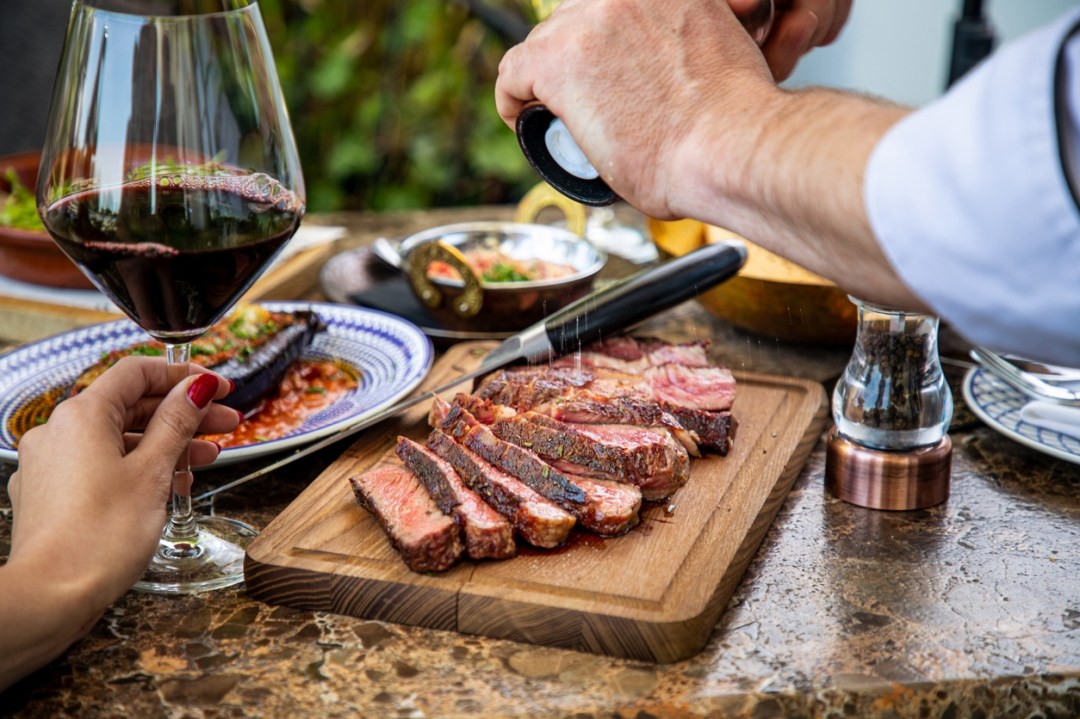
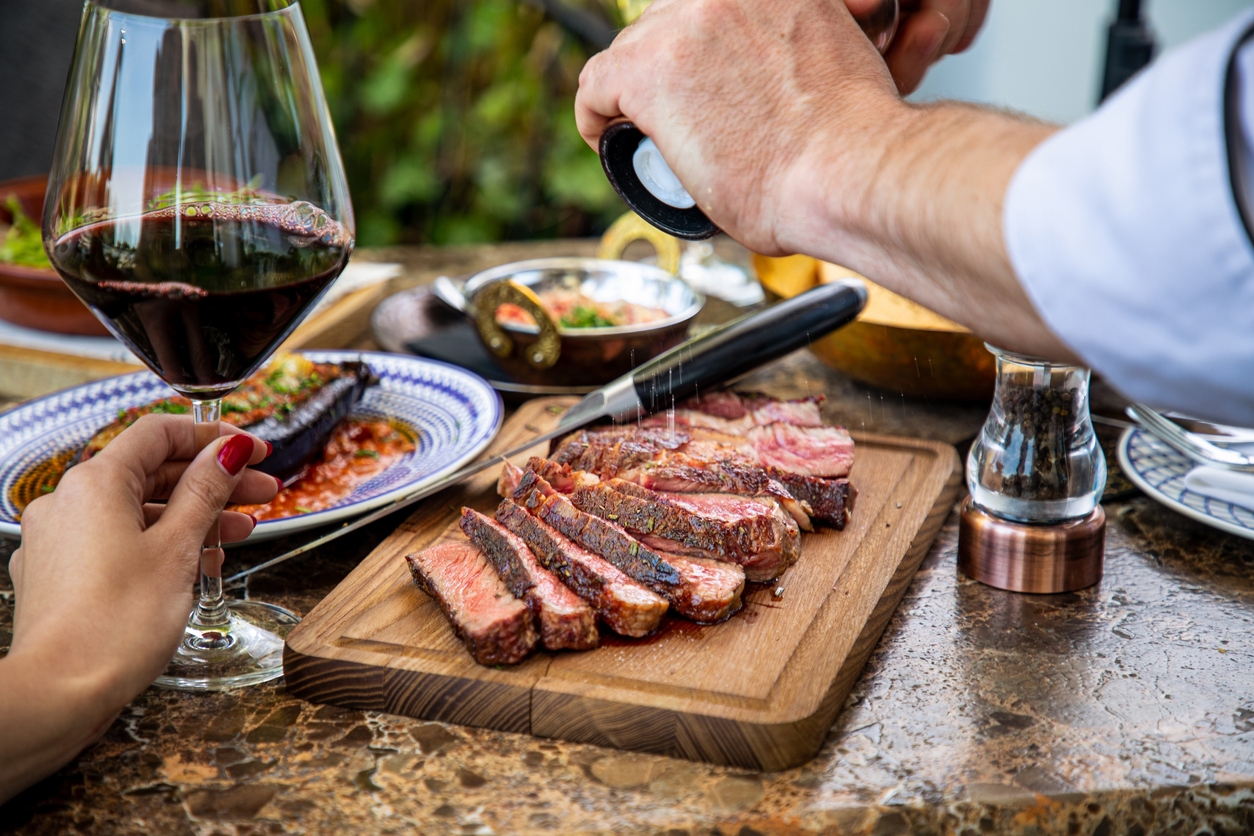




Comments